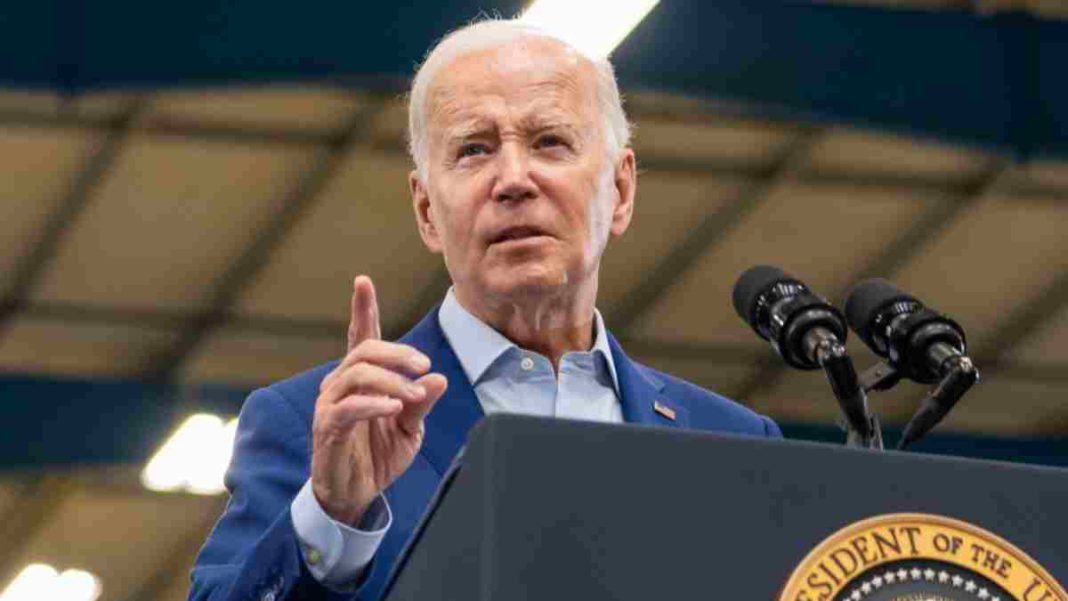ISRAEL/ GAZA: On Wednesday, U.S. President Joe Biden will embark on a high-stakes visit to Israel as it readies to intensify an operation against Hamas militants that triggered a humanitarian crisis in Gaza and raised concerns about a potential broader conflict involving Iran.
Biden’s visit is a significant demonstration of U.S. support for its key Middle East ally, especially in the wake of a tragic event on October 7, when Hamas gunmen killed 1,300 people during an attack on southern Israeli towns, marking the deadliest single day in Israel’s 75-year history.
Israel, in response, has escalated its blockade on Hamas-controlled Gaza, including tighter restrictions on fuel imports and conducting airstrikes in the region, resulting in the deaths of thousands of Palestinians and the displacement of hundreds of thousands more.
Early on Tuesday, U.S. Secretary of State Antony Blinken announced that Joe Biden would travel to Israel after hours of negotiations with Israeli Prime Minister Benjamin Netanyahu in Tel Aviv.
Biden would meet with Netanyahu, reaffirm Washington’s commitment to Israel’s security, and receive a comprehensive brief on its war aims and strategy, Blinken said.
Blinken said that during their meeting, Biden would reinforce Washington’s commitment to Israel’s security and get a detailed briefing on its war objectives and strategy.
“(The) president will hear from Israel how it will conduct its operations in a way that minimises civilian casualties and enables humanitarian assistance to flow to civilians in Gaza in a way that does not benefit Hamas,” Blinken further added.
Blinken also mentioned that he and Netanyahu had reached an agreement to formulate a strategy for delivering humanitarian assistance to the civilian population in Gaza, although specific details were not provided.
Following his visit to Israel, President Biden is scheduled to journey to Jordan, where he will meet with King Abdullah, Egyptian President Abdel Fattah al-Sisi, and Palestinian Authority President Mahmoud Abbas, John Kirby, a U.S. national security spokesperson, said.
Authorities in Gaza have reported that, since October 7, over 2,800 individuals have lost their lives in Israeli attacks, with approximately a quarter of them being children. Additionally, more than 10,000 people are currently hospitalised, facing acute shortages of medical supplies.
The Israeli military reported conducting overnight airstrikes targeting Hamas and Islamic Jihad military facilities, which included Hamas’ headquarters and a bank used by the group. Gaza’s interior ministry stated that at least 49 Palestinians lost their lives in an Israeli strike that hit homes in Khan Younis and Rafah.
Israel has claimed that Hamas captured 199 hostages during their actions. In response, Hamas has referred to foreigners among the captives as its “guests” and indicated that they would be released “when circumstances allow,” making it clear that it seeks to exchange these foreign captives for thousands of Palestinians held in Israeli prisons.
A video released on Monday showed a French-Israeli woman captive, identified as 21-year-old Mia Schem, receiving medical treatment for an injured arm. She expressed her desire to be reunited with her family as soon as possible.
Conflicts in Israel’s North
President Biden’s visit is considered a rare and somewhat risky move, demonstrating U.S. support for Prime Minister Netanyahu as the United States aims to prevent a larger regional conflict involving Iran, its Lebanese ally Hezbollah, and Syria.
Amid Israel’s plans for a potential ground invasion of Gaza to confront Hamas, clashes on the border with Hezbollah have intensified on Israel’s northern border with Lebanon.
On Tuesday, the Israeli military reported killing four individuals attempting to cross the border fence to plant explosives. Israel also ordered the evacuation of 28 villages located within a 2-kilometre-deep zone near the Lebanese border on Monday.
Iran celebrated the recent attacks by Hamas on Israel, even though it denies direct involvement. The Iranian Foreign Minister, Hossein Amirabdollahian, stated on state TV that Israel’s actions in Gaza would not go unanswered and warned of potential “preemptive measures” in the coming hours.
“All options are open, and we cannot be indifferent to the war crimes committed against the people of Gaza. The resistance front is capable of waging a long-term war with the enemy,” Amirabdollahian said.
On Monday, Netanyahu addressed the parliament, saying, “A message for Iran and Hezbollah: don’t test us in the north. Don’t make the same mistake you once made. Because today the price you will pay will be much heavier.”
As Israel deploys troops along the Gaza border, it has instructed over a million individuals in the northern part of the enclave to relocate to the southern area for their safety. In contrast, Hamas has advised them to remain in place.
Although tens of thousands have heeded the call to move south, the United Nations has raised concerns about the logistical challenges of relocating such a large population without triggering a humanitarian crisis.
The United Nations has reported that a million Gazans have already been displaced from their homes, and the region is grappling with power shortages, limited access to clean water, and dwindling fuel supplies for hospital emergency generators.
Also Read: Gaza Border Crossing Slated to Reopen as Israeli Troops Gear up for Ground Assault



